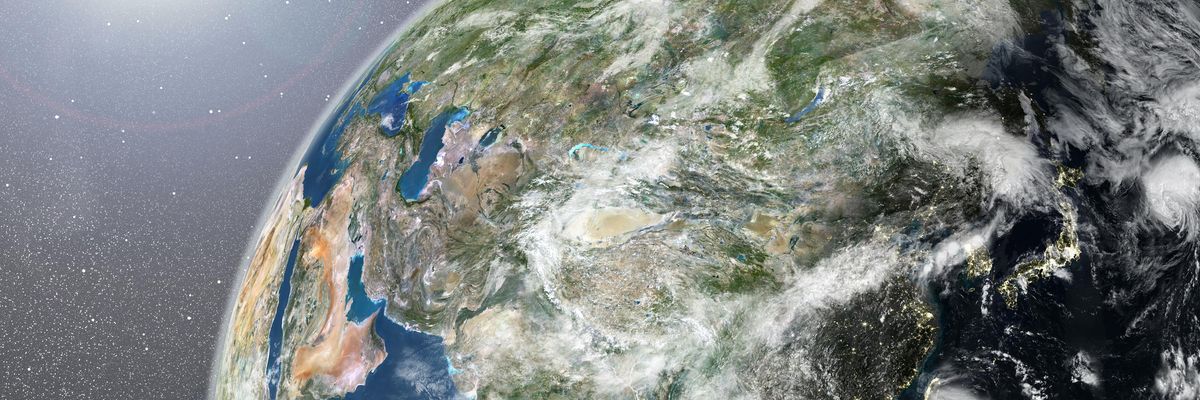French astronaut Thomas Pesquet says the impacts of the climate emergency are clear from space--and worsening on his watch--and has expressed optimism that the kind of global cooperation that built the International Space Station can also be channeled to protect the planet he calls "an oasis in the cosmos."
"Through the portholes of the space station, we distinctly see Earth's fragility."
Pesquet, a European Space Agency astronaut, made to the remarks in an interview published Monday at CNN.
In November, Pesquet, completed a six-month mission aboard the International Space Station. It was his second tour at the ISS, following an earlier mission in 2016 and 2017.
From space, an astronaut has a unique view of "the fragility of planet Earth," he told the outlet.
There's simply "emptiness," he said, "apart from this blue ball with everything we need to sustain human life, and life in general, which is absolutely fragile."
"It makes you want to cherish the Earth and protect it," he said, "the more you see it from space."
According to Pesquet, the view from space also reveals the impacts of humanity's destruction of nature such as river pollution. But the "most visual visible effect" of the climate crisis, he said, is the retreat of glaciers.
Compared to his earlier mission, Pesquet told CNN that on his 2021 tour he "could see a net increase in the frequency and the strength of extreme weather phenomena like hurricanes, like wildfires."
He also likened the "peaceful cooperation between countries that were not always friends" in maintaining the space station, and suggested that transferring "that model to the way we deal with the environment on Earth" could lead to planetary protection.
"If we can make a space station fly," said Pesquet, "then we can save the planet."
On Instagram, Pesquet has captured many remarkable images from the station, documenting both Earth's beauty and the impacts of the climate crisis:
In October, Pesquet described viewing the climate crisis from space and the increasing prevalence of destructive events viewable from above. "Definitely, the hurricanes, seen from space, and the forest fires, I had never seen that before, especially on my previous mission."
He conveyed his space view of the planetary crisis to French President Emmanuel Macron last year. "Through the portholes of the space station, we distinctly see Earth's fragility," he said. "We see the damaging effects of human activity, pollution of rivers and air pollution."
He and the other astronauts on the 2021 mission also witnessed wildfires ravaging various regions including California, which was "covered in a cloud of smoke, we saw the flames with our naked eyes."
Worsening impacts of the climate crisis from his tour five years earlier were clear, he said: "The weather phenomena are accelerating at an alarming rate."

